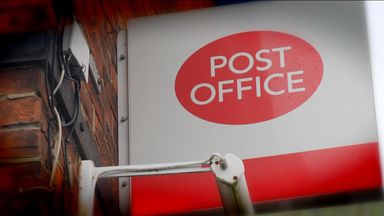Britain’s economy flatlined in April in a blow to Rishi Sunak’s hopes of hailing growth ahead of the general election, official figures show.
Wet weather and a slump in the construction sector meant monthly economic growth fell from 0.4pc in March to 0pc in April, according to the Office for National Statistics (ONS).
This was marginally better than the 0.1pc fall economists had predicted.
But this shows the UK’s economic recovery has come to an abrupt halt after emerging from a recession earlier this year.
This reading comes after the last set of figures revealed a 0.6pc jump in GDP over the first three months of the year.
This led to Grant Fitzner, chief economist at the ONS, claiming that the economy was “going gangbusters”.
Construction output fell for the third month in a row, plunging by 1.4pc in April, falling short of the 0pc growth forecast by economists.
Private housebuilding slumped by 4.4pc month on month.
Hailey Low, associate economist at the National Institute for Economic and Social Research, said: “The UK remains fragile on its route to a sustained economic recovery.
“The broader perspective remains an economy grappling with stagnation as low productivity and high economic inactivity curtail growth potential.”
Paul Dales, chief UK economist at Capital Economics, said: “The stagnation in GDP in April doesn’t mean the economic recovery has been extinguished, but it’s hardly great news for the Prime Minister three weeks ahead of the election.”
But Mr Dales added that the economy is not on the “precipice”.
He added: “The dual drags on economic growth from higher interest rates and higher inflation will continue to fade throughout the year. That will generate a bit of an economic tailwind for the next government.”
However, the construction figures lay bare the challenges for any government’s attempts to boost housebuilding.
Labour leader Sir Keir Starmer has pledged to build 300,000 homes a year and the Prime Minister has vowed to bring back the Help to Buy scheme.
Elsewhere, monthly manufacturing output slumped by 1.4pc, far exceeding the expected 0.2pc fall.
This offset a 0.2pc rise in services output, which climbed for the fourth month in a row, driven by a jump in information and communications.
Suren Thiru, economics director at the Institute of Chartered Accountants in England and Wales, said: “These figures suggest that the UK economy stumbled noticeably in April as poor weather and the lagged impact of previous interest rate rises weakened key drivers of GDP.”
But the April data should be the “low point” for the economy, Mr Thiru said, as falling inflation should soon boost consumer spending.
Deutsche Bank has forecast a 0.8pc rise in GDP across the year, but the bank’s chief UK economist Sanjay Raj, said this could end up higher given the resilience of the services sector.
The figures come after separate ONS data on Monday showed faster-than-expected wage growth, with average regular earnings climbing by 6pc in the last year.
Economic inactivity also surged to a new 13-year high of 9.4 million people.
Disclaimer: The copyright of this article belongs to the original author. Reposting this article is solely for the purpose of information dissemination and does not constitute any investment advice. If there is any infringement, please contact us immediately. We will make corrections or deletions as necessary. Thank you.



